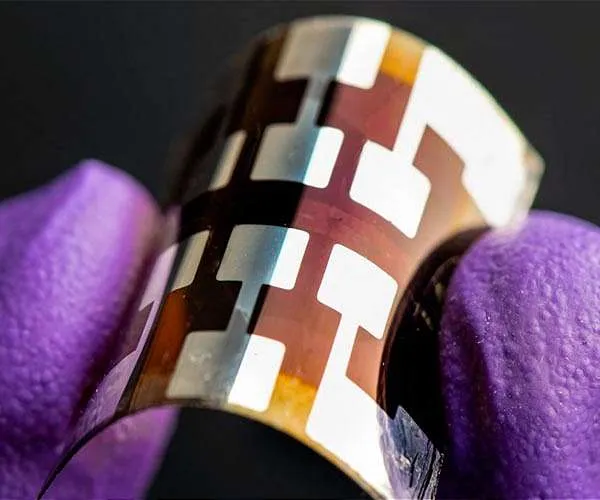University of Surrey awarded brand-new financing for perovskite solar cell research
- A consortium led by the University of Surrey has been awarded near Pounds 3 million to assist layout perovskite solar cells to power wearable modern technologies and Internet of Things (IoT) devices.

Crystalline silicon solar cells have actually dominated the solar market for several years, yet they can not power the rapidly expanding portable electronics market, specifically that of wearables and IoT devices which are anticipated to reach trillions of systems in the following couple of years.
There are already over 20 billion IoT devices in the marketplace that presently map and collect information, and 127 new devices are connected to the internet each 2nd, causing a potential IoT market worth US$ 1 trillion by 2023.
As a result, it has actually ended up being a necessity to establish cheaper products along with scalable production techniques to further accelerate the uptake of solar electrical power.
The team led by Surrey has actually obtained Pounds 2.3 million from the Engineering and Physical Sciences Research Council (EPSRC) and Pounds 500K from commercial companions to research, design and establish flexible perovskite photovoltaic or pv devices that can be produced at a high volume and an ultra-low price.
The research team is a partnership between Surrey and leading professionals in perovskite photovoltaics from the Universities of Oxford, Sheffield and Cambridge. The team is also sustained by partners including National Physical Laboratory, NSG Group, Swift Solar, Ossila, Oxford PV, Coatema and QinetiQ.
Professor Ravi Silva, project lead and Director of the Advanced Technology Institute at the University of Surrey, claimed: "We are grateful to the EPSRC and our industrial companions for the support they have actually shown this project. We are laying out to create a technology that can link the multi-scale power needs of arising markets - and yet, additionally tackle the obstacle of our age: climate modification.
" We are confident that perovskite photovoltaics are a vital part of the problem of satisfying the net-zero discharge target by 2050."
Dr Wei Zhang, co-investigator of the project from the University of Surrey, said: "We are proud to collaborate with some of the most effective research groups in perovskite photovoltaics. Success in our research will certainly open the very large wearables and IoT power-source markets and will assist power the increasing number of mobile cordless innovations."
Also read
- CNNP Optoelectronics brings utility-scale perovskite modules out of the lab
- Low-Temperature Sequential Deposition Lifts Inverted Perovskite Solar Cells Efficiency Record
- Self-Assembling Molecule Breakthrough Brings Commercial Perovskite Solar Closer to Market
- Camphor Additives Boost Perovskite Solar Cell Efficiency
- NUS Sets Record With 26.4% Perovskite-Organic Solar Cell
